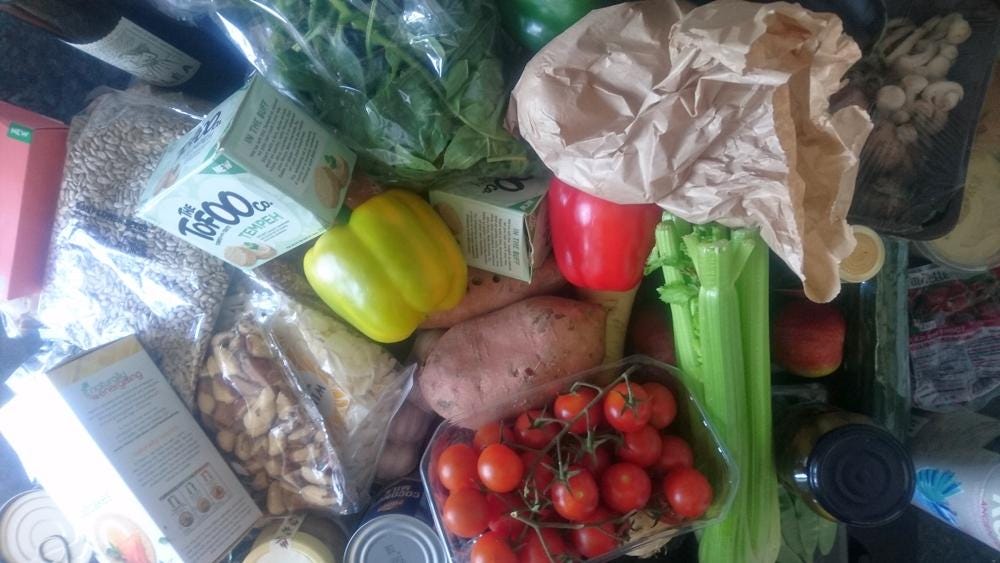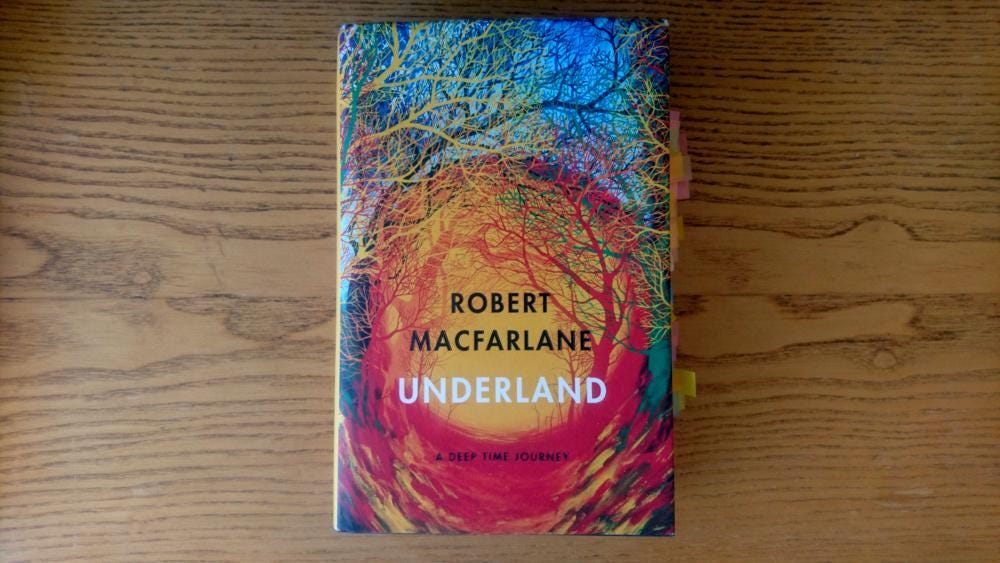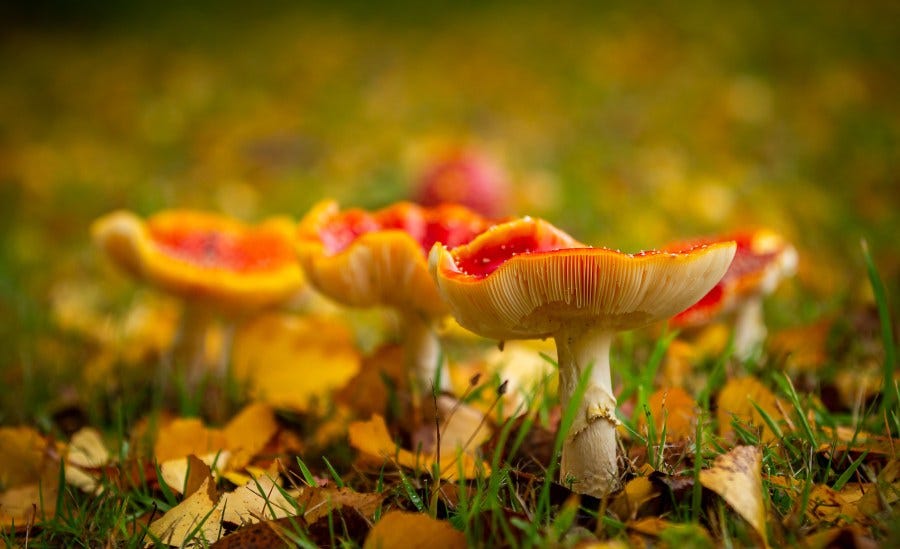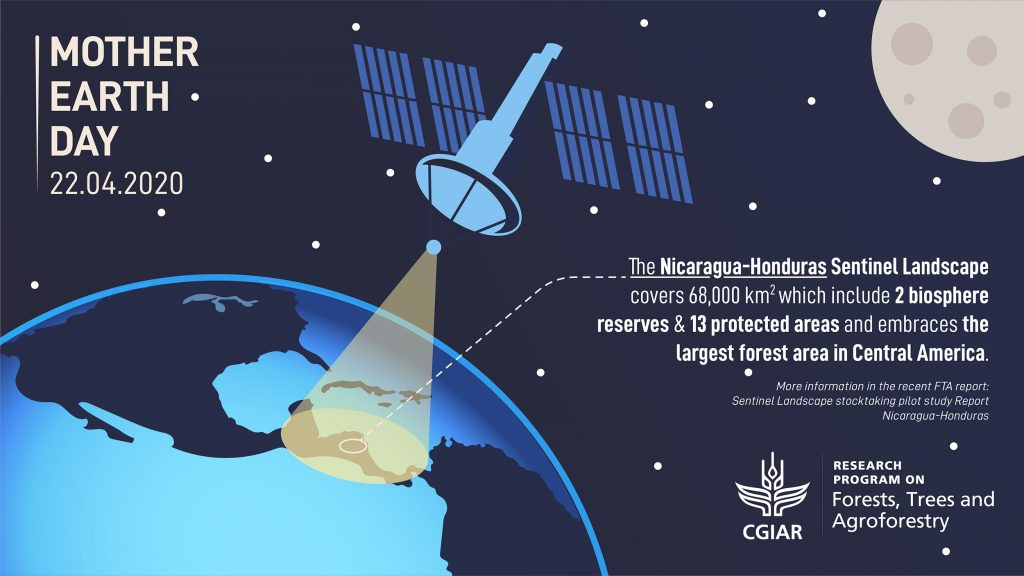Isovegan [🇩🇨]
This week: isolation veganism, antifragility, Mother Earth Day, and quizzing...
Happy Friday!
And a warm welcome to a very busy newsletter this week. We’ll be galloping through isolation habits, one of the greatest books I’ve ever read, plus not one, not two, but three outdoorsy articles I’ve had published since we last met. Thank you to everyone who got in touch about last week’s people pleasing piece — seems like we’re not alone!

Isolation Veganism
For the past couple of weeks I’ve been eating what I’m calling eggy vegan: a vegan diet with eggs. (On the eggs: not many, and none in the past week.)
Why am I doing this? Mainly because there has never been a better time to make radical changes to my sturdiest habits — and that definitely includes my diet.
Contrary to appearances, this post is less about veganism and more about habit making and breaking, using as an example a fundamental part of our daily lives that a lot people believe is almost impossible to change: diet.
The story begins with fragility and its opposite: antifragility.
We are all antifragile
Extreme constraints like those we face in lockdown are often seen as negatives, but without anything holding us in we’d be nothing more than puddles of carbon and water.
Constraints aren’t just fundamental to our existence; they’re the only reason we have anything worth living for: the arts, crafts, science and even play.
In golf, players have to get a little white ball into a marginally bigger hole 410 yards away. That’s the game. But skill only comes into the picture when we add the limiting constraint: the players have to move the ball with a metal stick. Without this constraint, Tiger Woods isn’t worth $640 million.
Constraints ostensibly make things harder, but in so doing make things possible.
This guiding principle explains why humans are, to borrow the neologism of Nicholas Nassim Taleb, antifragile. Fragile objects shatter when mishandled. Robust objects are impervious to mishandling. But antifragile objects actually improve with mishandling.
It’s a wild concept, but true nevertheless: press ups only make you stronger by first breaking down your muscle fibres. At school, understanding begins with confusion.
Similarly, if we adopt an antifragile mindset, the rough treatment we’re suffering under Covid-19 will make us stronger. A sudden upturning of our nest might be mistaken for a vindictive catastrophe; it is rather a ‘moment of change’.
Isolation as a global ‘moment of change’
‘Moments of change’ are occasions where the circumstances of an individual’s life change considerably within a relatively short time frame.
Remind you of any recent events?
This definition comes from a 2011 report by the New Economics Foundation (NEF), which summarises the ‘moments of change’ research, analysing these rare opportunities for changing our behaviour, our habits and even our most primal conceptions of who we are.
The NEF study picks out some common moments of change that happen occasionally in most lifetimes: leaving home for the first time, the transition to parenthood, moving house, retirement, energy crises and global recessions.
But I can’t think of a more dramatic moment of change in my lifetime than the Covid-19 pandemic.
Change your environment, change your behaviour
Habits, by definition, are automatic patterns of behaviour: actions we take without really thinking too much. They can be remarkably stubborn and resistant to change — but they’re also tightly bonded to our surroundings.
Think about how hard it would be trying to work down the pub compared to when you’re in the office. You’re the same person — your habits haven’t gone anywhere — but the different environments cue different routines and end up completely changing how you behave.
The opportunities presented by moments of change come about because most of our habits are actually interactions with our immediate physical and social environment.
For most of us, these interactions have been disrupted by self-isolation. The transition from your workplace to working at home is an obvious example of the disruption in environmentally cued behaviour that a lot of us are feeling right now.
But what’s happened to your shopping environment, your eating environment, your exercise environment, your socialising environment? If you’re anything like me, then everything has been thrown up in the air.
All our habitual environments have been shaken up, interrupting the routine behaviours they usually cue.
As NEF put it:
When something interrupts performance of the old behaviour, the need for some degree of conscious direction returns — and once this has happened, the behaviour may be more susceptible to change.
Right now, interruption is happening on a massive scale. Suddenly, we all have to exercise a ‘degree of conscious direction’, perhaps for the first time in many years. The habit discontinuities we’re all facing are opportunities to change our routine behaviour in our relationships, work life, consumer habits, physical fitness and — why not? — diet.
Veganism, dairy and the microbiome
I’ve experimented with vegetarianism before, and for the last five years meat hasn’t been a huge part of my diet (barring one spectacularly ill-fated experiment in 2017), so abstaining from flesh was never going to be an issue.
But then there’s dairy.
Every breakfast for the past three years, I’ve unerringly eaten 250g of high-fat Greek yoghurt, with oats, raisins and nuts. Not, you’ll note, vegan.
A large proportion of meals also came with grated cheese and I’d frequently demolish an afternoon snack of creamy nuts: that’s about 100ml of double cream in a bowl filled with nuts. Not, you’ll note — heck, that’s scarcely edible for most people, let alone vegan.
So going vegan — even eggy vegan — was not going to be easy on my gut.
Lo and behold, my first four days without dairy were peppered with splitting headaches and slothish lethargy. From previous dietary experiments, I’d been expecting this miserable side effect, so I knew how to barrel through.
I like to imagine that these headaches were my dairy-loving bacteria putting up one hell of a fight. On the fifth day, though, they are defeated: starved out of existence and replaced with bacteria that prefer to get their nutrition from celery sticks and tempeh.
This explanation, if not completely upheld by science, is at the very least ‘sciency’, as I explain in this post about quitting sugar. No matter its degree of accuracy, this ‘explanation’ eases me through the temporary fog of headaches and tiredness, out to the other side: eggy veganism.
I have taken this moment of change to try on an alternate personality that’s interested me for a while.
It doesn’t have to go any further than that, of course, but there are intriguing case studies of vegan endurance athletes, the vegan diet is currently ranked as the most nutritious, and there is good scientific evidence that a vegan diet imposes a lighter load on the planet (and no I haven’t had an avocado yet).
But will I want to maintain the diet when lockdown ends?
We don’t want ‘normal’
Historical data from the NEF report suggest that behaviour changes made under pressure don’t tend to last once the crisis is over. Indeed, the hope that everything will go back to normal is why many people are happy to temporarily surrender their usual lifestyles in the first place.
It’s almost certain that I’ll be offered meat or dairy when I return to society — most of my friends and family aren’t vegan and I’m not so wedded to this lifestyle that I’d turn down food if they’re kind enough to cook for me.
But forget other people, after lockdown I myself will be tempted to choose dairy much more frequently than I am now.
Before Covid-19, I went food shopping every couple of days; at the moment, it’s once every 7-10 days. That means I only have to ‘resist’ buying meat or dairy once a week — easy.
My shopping habits feed (pun intended) directly into my eating habits. Change my shopping environment and I change my eating environment: at home I only have eggy vegan choices now.
When society opens back up, will I maintain my new shopping habits? Will my post-lockdown shopping habits, whatever they are, support or undermine my new eggy vegan diet? I don’t know.
But those of us who have used this moment of change to try on an alternate personality — and decide that we want to keep it — must reject the almost irresistible return to normality. We don’t want to abandon our old habits temporarily. We don’t want to go back to ‘normal’ any more. We want change.
It’s one thing to build good habits in this ascetic Covid-19 environment; it’s quite another making them robust enough to survive the shock of opening up. But by anticipating the challenge of impending normality — in the way that I anticipated the headaches and lethargy of quitting dairy — we have at least a chance.
Smug as
So, the big question: how did I replace my heaped bowl of yoghurt every morning? The answer, quite simply: I didn’t — I couldn’t. What in the plant kingdom could possibly imitate animal fats? Genetically, I don’t think it’s possible.
(And, no, the answer is not ‘oat crème fraîche’. Vegetables oils are exactly that: oily. They slimily slither over the tongue and cling to a clammy palate. Dairy fats are, in contrast, fatty. They somehow sink to the bottom of the stomach, leaving a feeling of satiety and a clean taste in the mouth. Mine at least.)
The answer was to cut the Gordian Knot, remove ‘breakfast’ entirely and replace it with something even better than breakfast.
For the past couple of weeks, I’ve started my day with a 30g pea and rice protein shake, which I drink while cracking on with work. The green mush is much easier to digest than a big bowl of dairy and keeps me alert throughout my new-found, vegan-inspired morning work regimen.
Smug as fuck.
We’ve. Got. Time.
It’s worth saying that habit change isn’t the same for all people, in all environments and for all behaviours.
I personally find going ‘cold turkey’ has been the best approach for changing diet and has served me well when cutting out sugar and caffeine. I didn’t want to gradually phase out dairy: it would’ve been too hard for me to resist binging. The downside is that I knew I’d have four days of headaches.
But going from zero to a sixty with press ups or running is the quickest way to fail. Run a marathon tomorrow and I’ll be injured for a month. If I’m injured, I can’t build a habit. Far better to start slow and build than to rush for the line and fall.
As well as physical limitations, there are mental limitations.
It doesn’t make sense to force myself to do yoga if I’m not enjoying it. That’s why my daily yoga habit is simply to do as much yoga as I feel like. At the beginning, nearly five months ago, that was five minutes before bed. Now it’s around 20 minutes, twice a day.
My goal is not the accomplishment of some landmark. My goal is to build a sustainable, healthy lifestyle. Cold turkey is one approach and a slow-build while only doing as much as I enjoy is another. For both, I find this mantra helpful: don’t miss twice.
Whichever approach you find most helpful, if there’s one thing we’ve learnt over the past four weeks it’s to slow down and take each day as it comes. We’ve. Got. Time.
Over to us
Kintsugi is the traditional Japanese art of mending broken pottery with lacquer dusted with powdered gold. Sure — super glue also works, but kintsugi is a reminder that we can choose to see the beauty in broken things.
Our work habits are broken. Good. Our social habits are broken. Good. Our shopping habits are broken. Good. We’ve probably got another 18 months of on-and-off lockdown. What are we going to do with this fracture in our habits? Are we fragile, are we going to shatter? Or are we antifragile, are we going to fill the cracks with gold?
My eggy vegan diet isn’t nearly as smug as it sounds. After two weeks, I still get faint bouts of acid reflux and I’ve had to shelve the peanut butter. I’ve read some stuff about ‘alkalising’ my food, but until I’ve had a chance to read more studies, I’m dubious.
This is still a journey of exploration for me. Yesterday I discovered one of the great secrets of vegan cooking: miso paste — in fact, sauces in general. The hand blender has become my closest ally.
I know some of you are plant-based: if you are vegan (or close enough), then I’d love to hear what you’ve learned so far. Honestly. Please drop me an email.
Whatever you think about veganism, I hope I’ve convinced you that isolation is a rare opportunity to get inside your own head, have a rummage around, learn some cool stuff and change for the better — or at least for the more interesting.
It’s over to us now.
Underland by Robert Macfarlane

There’s a new Books Make Books review up, this time on the wonderful Underland by the improbably talented Robert Macfarlane.
The book answers questions like ‘What will survive of us?’ and ‘What’s more superhero than fungi?’, while introducing me to new words like ‘stridulations’, ‘solastalgia’ and ‘soteriology’ — and that’s just the Ss.
What a treat. You can subscribe to Books Make Books and read the archive here.
The Earth’s dark matter

Five hundred years ago, Leonardo da Vinci wrote, ‘We know more about the movement of celestial bodies than about the soil underfoot.’
Leonardo’s statement is not only still true, but the knowledge gap he identified seems more perverse with every passing year. Human knowledge of the soil is eclipsed many times over, not only by astronomy, but by almost every other field of natural history too.
You can read why our ignorance of the soil and, in particular, fungi is so perverse in an interview I conducted with Martin Bidartondo, professor of Molecular Ecology at Imperial College London. Image: Greg Johnston, Flickr.
Dear Earthlings!
As you may have noticed, Wednesday was International Mother Earth Day and I was genuinely honoured that the Center for International Forestry Research chose to publish not just one, but two of my pieces to celebrate the occasion.

The first is a long read on the global Sentinel Landscapes project, an audacious attempt to do for ecology what epidemiology has done for health.
As Covid-19 has clearly shown, there is no hope of disaster mitigation without reliable data. If we are to survive the Anthropocene and the peril of a climate catastrophe, then we need more data, more Sentinel Landscapes.
Plus there’s some good stuff in there about the central importance for carbon capture of soil, rather than our arboreal poster boys. Still love the trees, though.
The second piece, on living closer to the earth, actually began its life in these very pages. You’ll recognise a few titbits from the weekend bushcraft course I took in those halcyon days pre-lockdown. Thanks to G.L. for commissioning the article!
Can’t even…
The following three things have helped me through the past week.
1/ Squats
Talking of habits, this ‘two hundred squats’ programme was designed by the same people who built the regime I use for my thrice-weekly elevated press ups.
I used to try and rush through these programmes to ‘finish’ and reach my goal, but now I always start from Week 1, Level 1 and go up slowly, slowly. I enjoy the gradual improvements over the course of years, not weeks. I don't even want to finish these programmes. The only finish line is death and rushing there will only hurt my back.
Thanks to H.S. for inspiring me to take up squatting.
2/ Calvin and Hobbes
Every lunch hour, I’ve stepped into my cardboard box time machine and gone back to those long summer days of 1995, with a bowl of something tasty and a cartoon strip.
Circumstances have changed somewhat since I last read the stories, but they still make me laugh, think, then laugh again. Big thanks to F.M., who recently reminded me of the whimsical philosophy of Bill Watterson’s creations.
3/ Quizolation
The virulence of the plague that sweeps the nation shows no sign of abating. I’m talking, of course, about the infestation of online pub quizzes.
One of my friends was lamenting that he had no less than five scheduled this week. I was honoured to be quizmaster for one of them and more or less tied everyone up in knots with the following question:

Answers to the usual address — and you’re going to have to be specific…
Full marks to…
1/ Paul Powlesland
Barrister Paul Powlesland is the founder of Lawyers for Nature, a group that represents nature in the courts. In 2012, Powlesland defended environmental activists arrested for protesting the destruction of 17,500 roadside trees in Sheffield. The trees weren’t to be cleared for housing or other civil amenities, they were to be cleared to make it cheaper to repair the roads. Powlesland’s defence was successful and he was, appropriately enough, ‘paid in trees’.
Recently, Powlesland rescued 1,000 oak saplings from a nursery that had to abandon their plans to plant 750,000 of the trees due to a change in government policy and our old friend the coronavirus. 1,000 trees is a heck of a lot and he’s put a call out for volunteers to help him plant around London. Find him on Facebook if you’re interested. Thanks to A.C. for sharing this awesome action.
2/ The Zoe Covid-19 symptom tracker app
Every day, along with a couple of million other people, I’ve been logging on to the Zoe Covid-19 symptom tracker. The data is fascinating and shows predictions of how the disease is progressing. Every week, the scientists behind the project give a public webinar to explain the science. You can watch yesterday’s here.
Full marks to Tim Spector, Claire Steves and the rest of the team for putting this together. If you’re not already on the app, then please think about joining — the data can be used for early detection of a second wave, and in the future possibly even give access to testing for people who register symptoms.
Zoe particularly need more over 70s. You can now report the symptoms of other people so if you live with others who aren’t on the app, ask their permission to enter their symptoms too. It takes me about 5 seconds every day.
By the way, if you already have the app, make sure it’s fully updated because there are a few new questions designed to help scientists get a closer look at this weird virus.
3/ Robigus, the Roman God of Wheat Leaf Rust
Tomorrow is the Robigalia, a propitiative festival in honour of the Roman God of Wheat Leaf Rust, who could destroy a year’s harvest if displeased.
As Salman Rushdie wrote: ‘Most of what matters in our lives takes place in our absence.’ The moment of our conception, the arcane decision-making processes of university exam boards and, not least, governments, but also the diseases that gather on the periphery until the day they strike at our daily lives.
The Romans went in for dog sacrifice, but I wonder what offerings we could make to the invisible powers that circle our lives?
Any more for any more?
Roz Savage, who’s rowed solo across the Atlantic and the Pacific, has now published a book about isolation called The Gifts of Solitude — I couldn’t think of anyone better qualified to see the heart-shaped holes in our loneliness.
For those of you disturbed by the confusion around the spelling of COVID-19 (all scientists) and Covid-19 (most media), the explanation is simple: journalists use lower case for acronyms that are pronounced as a word, like Nasa and Unicef.
There have been no refugee boats arriving on the Greek islands for the past two weeks due to Covid-19. This is unheard of. Sadly, there are still nearly 40,000 refugees living in squalid camps on the islands, with meagre resources stretched still further.
The good news: together with Help Refugees, Thighs of Steel are plotting a massive isolation-friendly fundraising drive starting on May 16. More details coming your way…
This newsletter is dedicated to the builders next door, keeping me company with miscellaneous tapping, thumping and banging while I write. There’s no point trying to drown them out, so I turn off my music and listen to the percussion. I’m glad that we’re both building something.
Finally: a huge happy birthday to my nan. She would’ve been 105 today. As she once told me: ‘Do it while you can!’
Much love,
dc:
CREDITS
David Charles wrote this newsletter. He publishes another newsletter about reading called Books Make Books. David is co-writer of BBC Radio Wales sitcom Foiled, and writes for The Bike Project, Forests News, Global Landscape Forum, Elevate and Thighs of Steel. He also edits books about adventure, activism and more. Reply to this email, or delve into the archive on davidcharles.info. Thank you for reading!
Unlock the commons for £30
These free weekly newsletters are currently 1.6 percent funded. You can unlock the commons for everyone by becoming a paying subscriber for £30 a year. Thank you.

